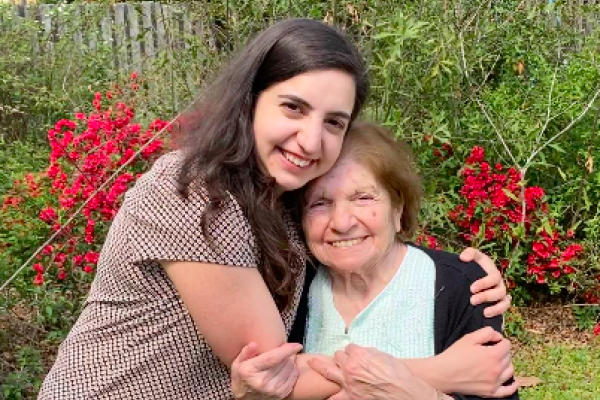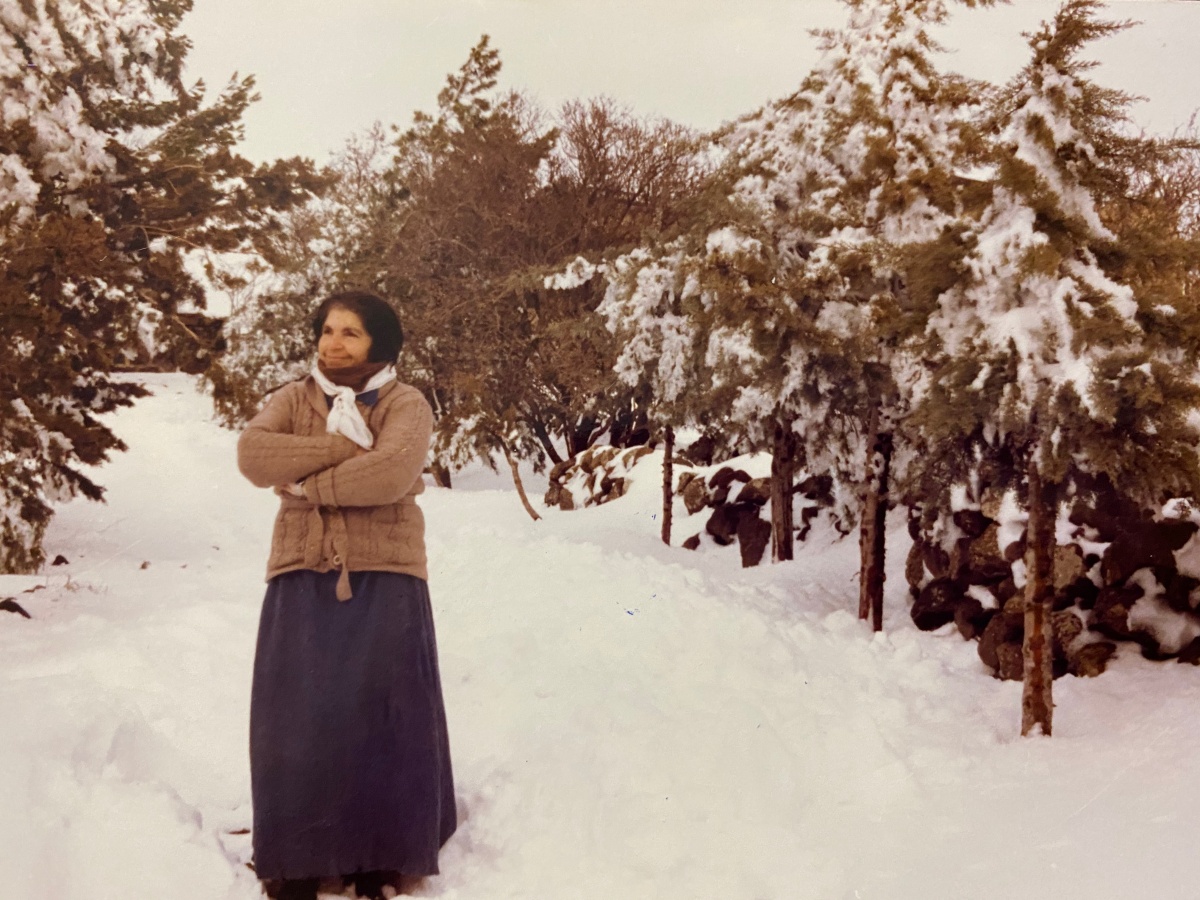
Deema Elchoufi and her grandmother.
Anchoring
The Start of the Journey
As I transition into second year from my first year of residency, I’m also visited by the one-year anniversary of the loss of my sweet grandmother, Selwa Azzam.
I was barely a few days into being a doctor when she suddenly became ill and passed away, in, what felt like, the blink of an eye. I found myself caught in a whirlwind, my momentum sharply shifting away from the hospital and back to my childhood home. How was I going to navigate this all? The responsibility I felt to be there for my family, the duty I had to my co-residents and patients, and the grief I felt deep in my bones overwhelmed me.
And then, my newfound community showed up.
Moments after the phone call with my family, I found my chief resident Karen Scherr in the workroom and told her the news. She embraced me tightly, unburdened me from pagers and to-do lists for that day, and sent me home to take care of myself. Within hours, our other chief, Clay Cooper, and our program director, Dr. Will Bynum, were on the phone with me, facilitating all the moving parts to allow me time with my family. My co-intern, Andrea Flores—also adjusting to the start of intern year—graciously stepped in to fill my shoes on my rotation. Countless members of my new residency family poured out their love and support, and one year later, the memories of their love in one of the hardest and most vulnerable times in my life brings tears to my eyes.
This was my first lesson in the generosity of heart and spirit in my residency community, and I watched these values in action over and over throughout this year.
The Storm
Starting our medical career in the middle of a pandemic, my intern class and I were dropped into an everchanging landscape that was rife with medical unknowns as well as countless life challenges. How do we put in orders correctly into the computer system? How do we treat this new disease? How do we manage common diseases? What will happen to my family if I bring home the coronavirus? When will they be able to be vaccinated, too?
Attempting to answer these questions as we jumped into the deep end of multiple environments within medicine often felt overwhelming. From the ICU to labor and delivery to the adult and pediatric wards, we saw it all. And this year, we saw all the ways the pandemic caused and exacerbated suffering in each of these arenas. We witnessed the direct impact in our patients whom we cared for with COVID-19, especially those who became severely ill or died. And we watched the countless indirect impacts of the pandemic: children and adults suffering from higher rates of depression, substance use, and suicide; pregnant patients laboring and delivering with less family support in the room or with COVID-19; families dealing with the loss of family members, friends, work, or housing; and the increasing health disparities in communities, to name a few.
The inherent difficulty of residency coupled with the unpredictability of the pandemic created a perfect storm that left me feeling unmoored, winded, and questioning. Holding onto the suffering outside and within me, my grasp on the reason I chose to pursue medicine frequently faltered.
Though in moments of quiet and stillness, I slowly started to see the good that surrounded me. I paused to take in the patient experiences that brought me joy. I let the countless examples of resilience I saw in people sink into my being. And importantly, I saw my residency community showing up for each other and for their community. From frequent check-ins with each other to forming coalitions such as LATIN-19 to the African-American COVID Task Force Plus, I drew strength, grounding, and inspiration from my peers’ and faculty’s examples, reminding me of my grandmother and the beginning of my journey into medicine.
My anchor and true north

Much like my residency community, my grandmother lived a life of service. Her tenacity and commitment to her students and community in rural Syria knew no bounds. When families were hesitant to send their daughters to school, she’d knock on doors to show families the value of educating their girls. When students without families had scabies, she’d bring them in before school to boil their clothes and treat their illness. Even in her 80s, she started an organization in her town to provide financial support to community members with medical illnesses. My grandmother’s example established the true north of my moral compass, and seeing her values reflected in those around me continually anchors me.
I wouldn’t be the person I am without my grandmother, who has left a legacy of service, kindness, and love etched into my heart. I wouldn’t be growing into the physician I want to become were it not for my residency family who care deeply for each other, our patients, and the health of the community. These bookends to this challenging year remind me of the why of it all and propel me forward.
Deema Elchoufi is a second-year resident with the Duke Family Medicine Residency Program. Email deema.elchoufi@duke.edu with questions.
Editor’s note: Duke Family Medicine residents guest blog every month. Blogs represent the opinion of the author, not the Duke Family Medicine Residency Program, the Department of Family Medicine and Community Health, or Duke University.